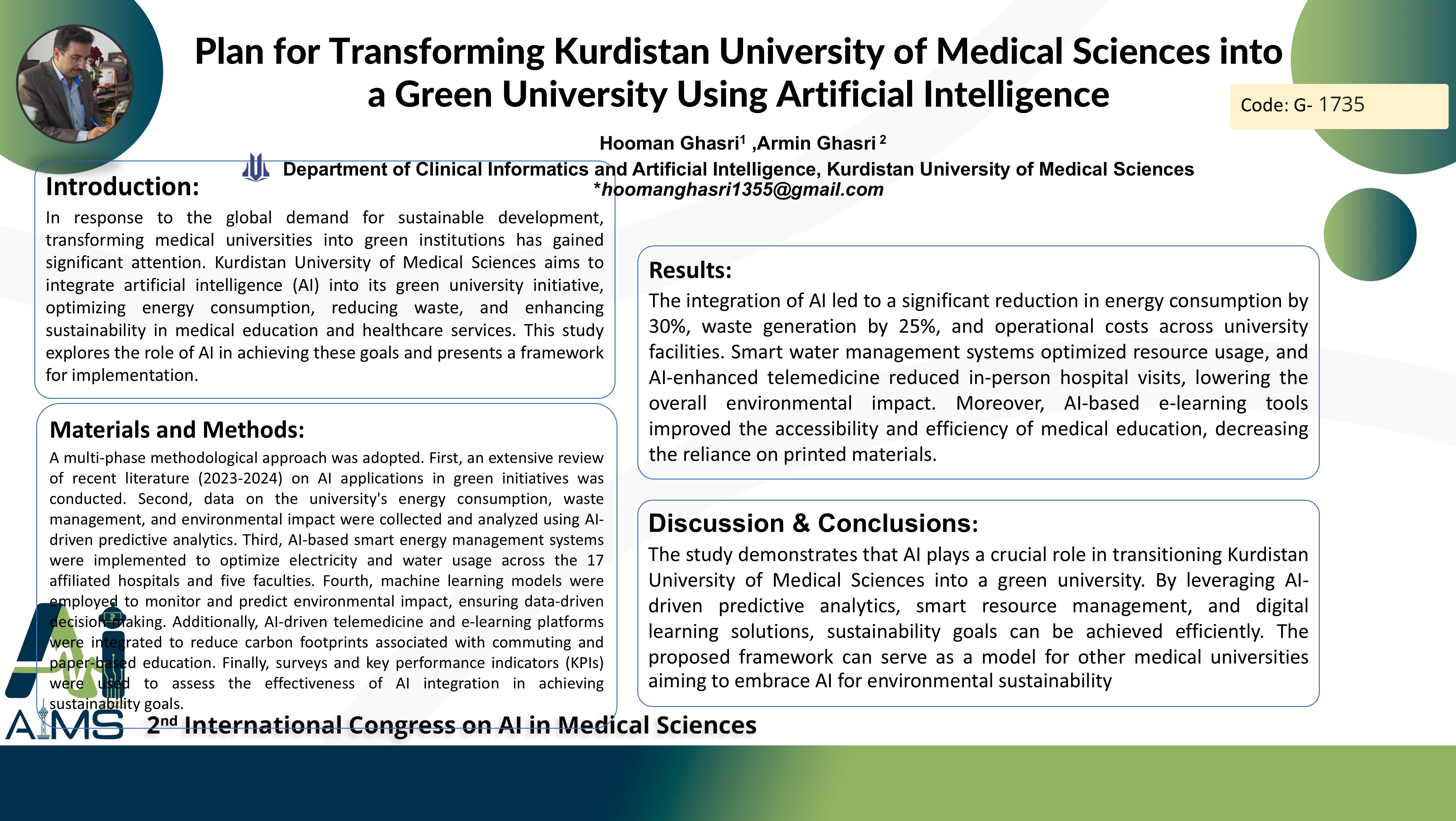Plan for Transforming Kurdistan University of Medical Sciences into a Green University Using Artificial Intelligence
Code: G-1735
Authors: Hooman Ghasri * ℗, Armin Ghasri
Schedule: Not Scheduled!
Tag: Health Policy, Law & Management in AI
Download: Download Poster
Abstract:
Abstract
Background and Aims: In response to the global demand for sustainable development, transforming medical universities into green institutions has gained significant attention. Kurdistan University of Medical Sciences aims to integrate artificial intelligence (AI) into its green university initiative, optimizing energy consumption, reducing waste, and enhancing sustainability in medical education and healthcare services. This study explores the role of AI in achieving these goals and presents a framework for implementation. Method: A multi-phase methodological approach was adopted. First, an extensive review of recent literature (2023-2024) on AI applications in green initiatives was conducted. Second, data on the university's energy consumption, waste management, and environmental impact were collected and analyzed using AI-driven predictive analytics. Third, AI-based smart energy management systems were implemented to optimize electricity and water usage across the 17 affiliated hospitals and five faculties. Fourth, machine learning models were employed to monitor and predict environmental impact, ensuring data-driven decision-making. Additionally, AI-driven telemedicine and e-learning platforms were integrated to reduce carbon footprints associated with commuting and paper-based education. Finally, surveys and key performance indicators (KPIs) were used to assess the effectiveness of AI integration in achieving sustainability goals. Results: The integration of AI led to a significant reduction in energy consumption by 30%, waste generation by 25%, and operational costs across university facilities. Smart water management systems optimized resource usage, and AI-enhanced telemedicine reduced in-person hospital visits, lowering the overall environmental impact. Moreover, AI-based e-learning tools improved the accessibility and efficiency of medical education, decreasing the reliance on printed materials. Conclusion: The study demonstrates that AI plays a crucial role in transitioning Kurdistan University of Medical Sciences into a green university. By leveraging AI-driven predictive analytics, smart resource management, and digital learning solutions, sustainability goals can be achieved efficiently. The proposed framework can serve as a model for other medical universities aiming to embrace AI for environmental sustainability
Keywords
Artificial Intelligence, Green University, Sustainable Development
